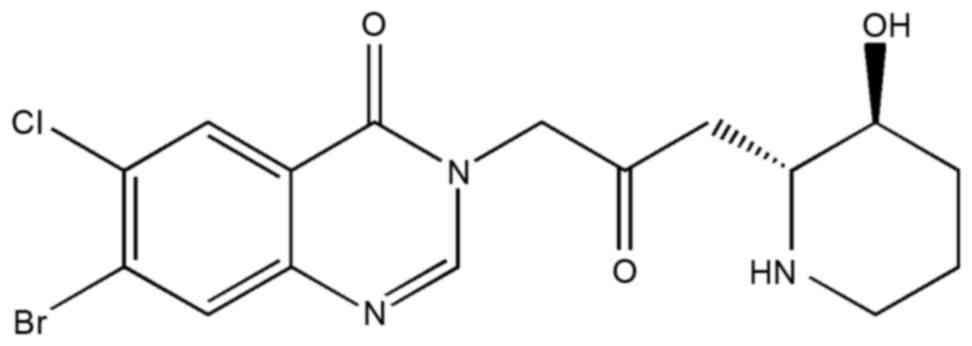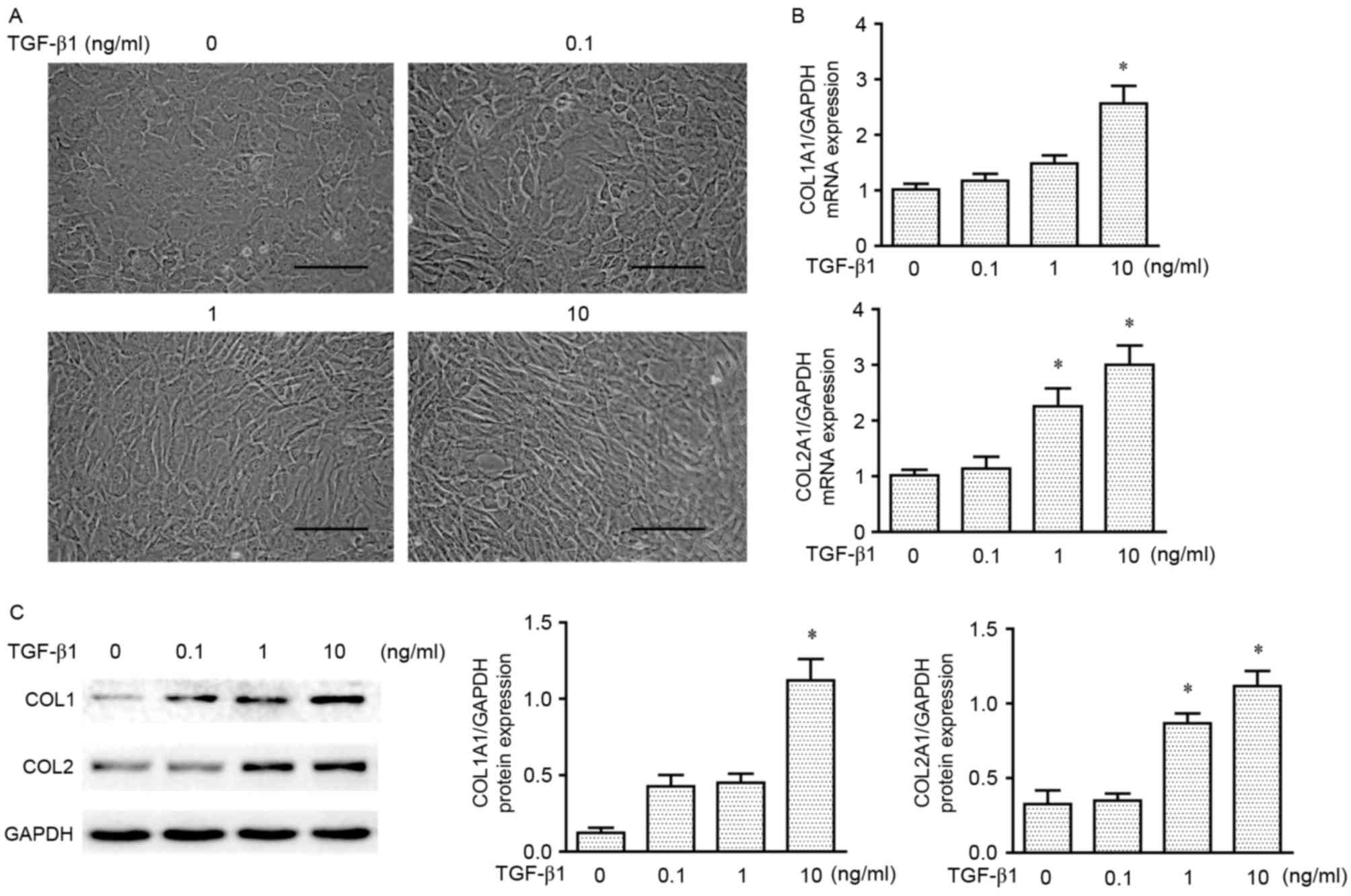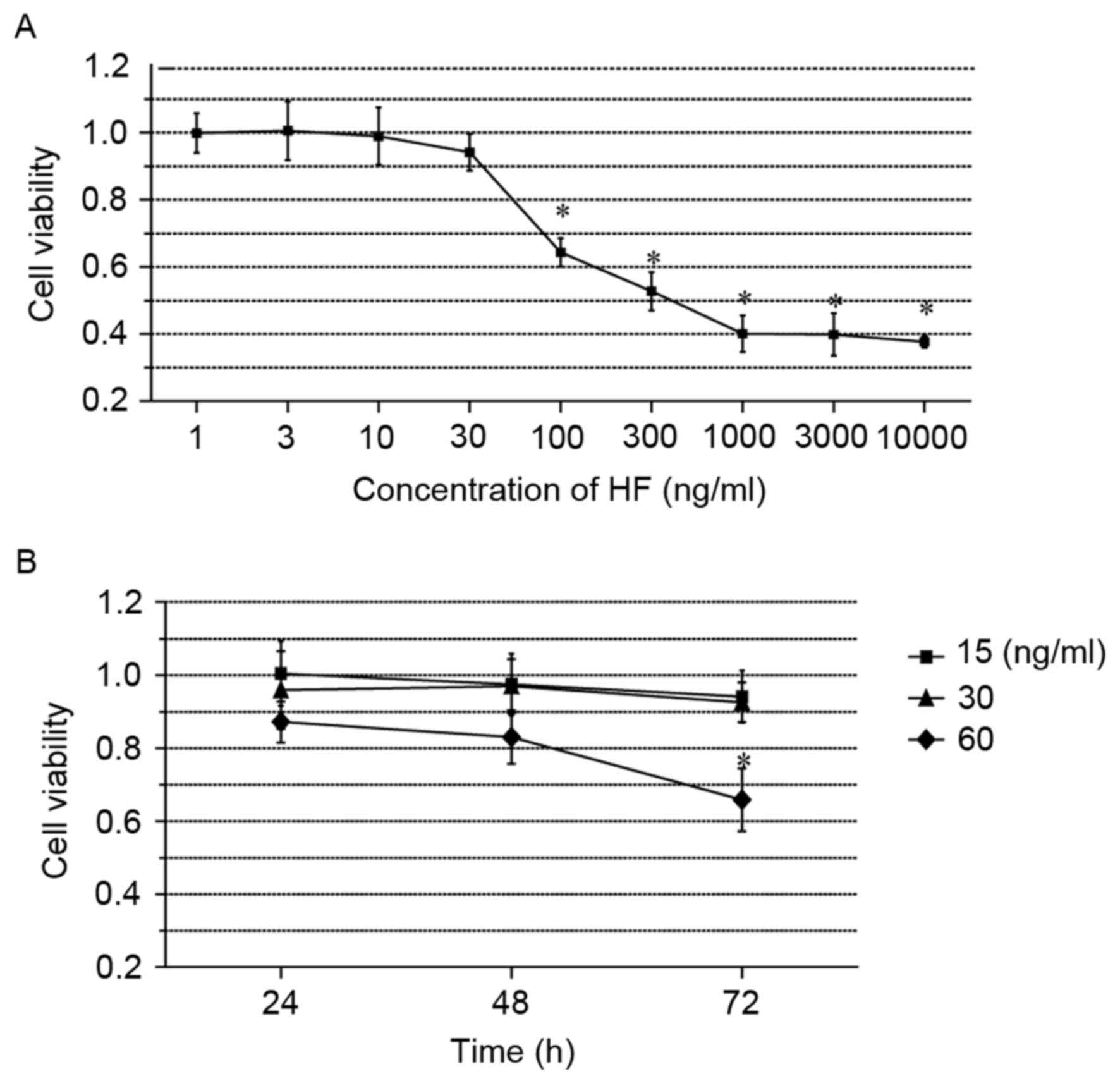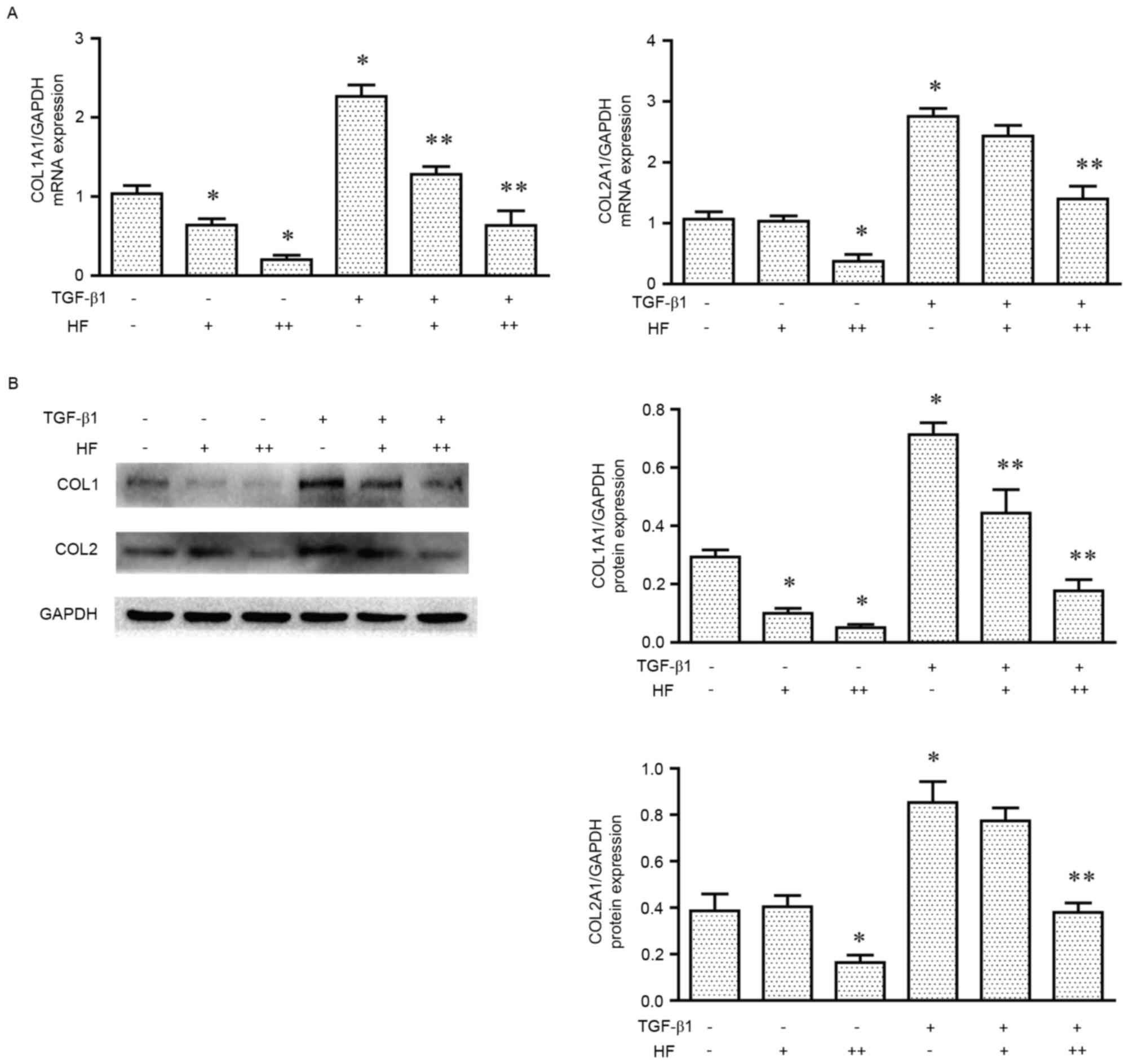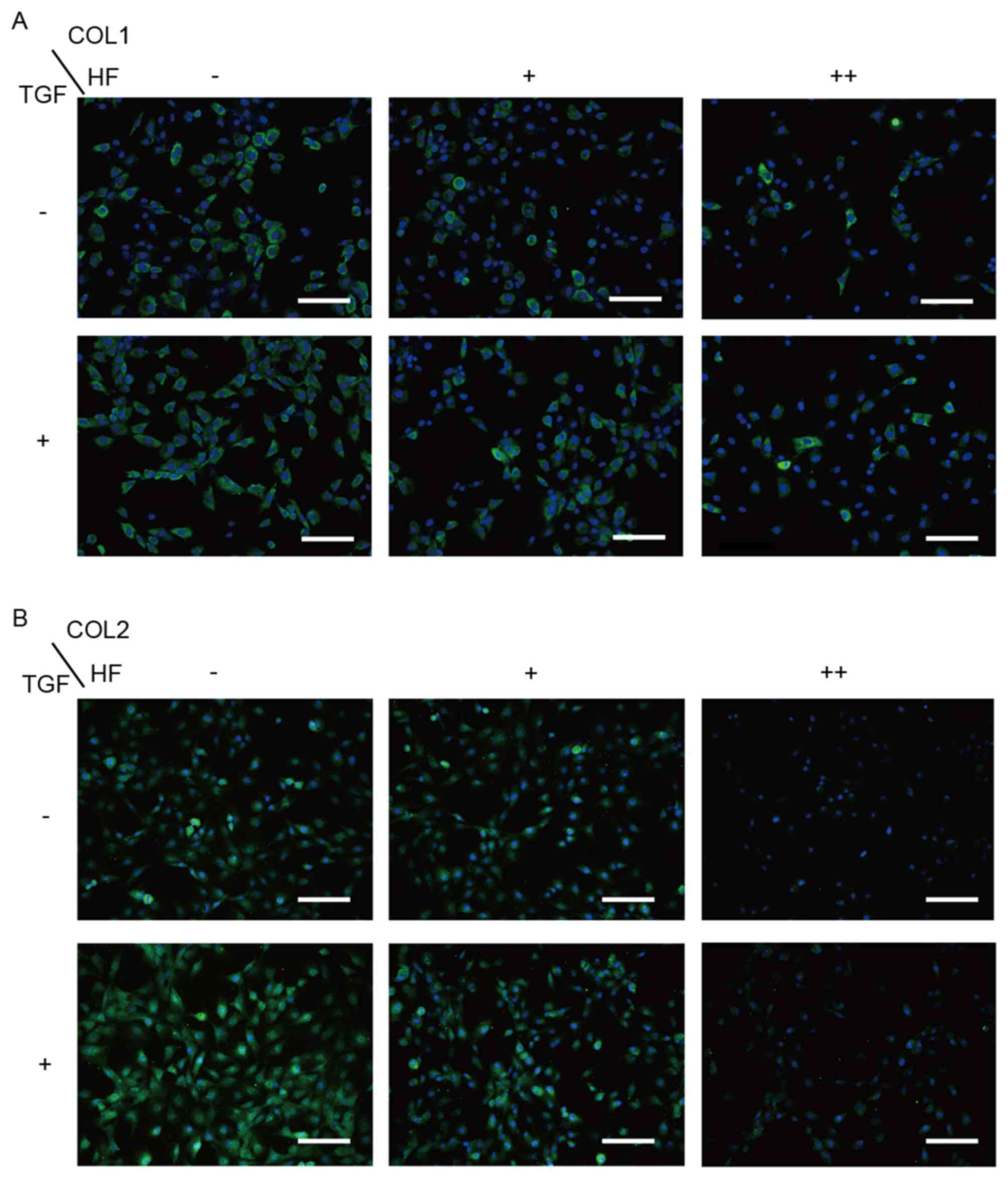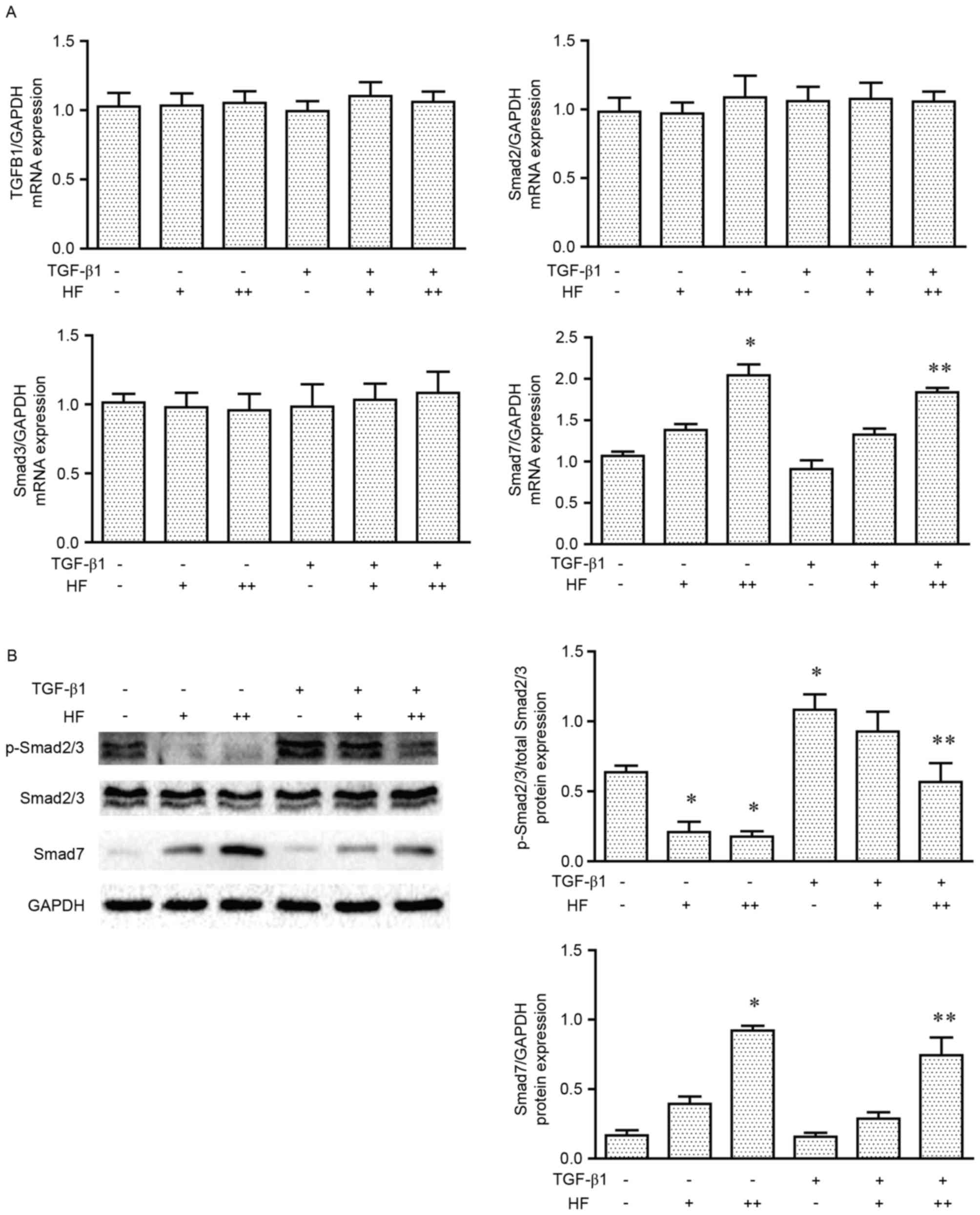|
1
|
Poole AR, Kojima T, Yasuda T, Mwale F,
Kobayashi M and Laverty S: Composition and structure of articular
cartilage: A template for tissue repair. Clin Orthop Relat Res.
(391 Suppl). S26–S33. 2001. View Article : Google Scholar : PubMed/NCBI
|
|
2
|
Oussedik S, Tsitskaris K and Parker D:
Treatment of articular cartilage lesions of the knee by
microfracture or autologous chondrocyte implantation: A systematic
review. Arthroscopy. 31:732–744. 2015. View Article : Google Scholar : PubMed/NCBI
|
|
3
|
Li Z, Zhu T and Fan W: Osteochondral
autograft transplantation or autologous chondrocyte implantation
for large cartilage defects of the knee: A meta-analysis. Cell
Tissue Bank. 17:59–67. 2016. View Article : Google Scholar : PubMed/NCBI
|
|
4
|
Benya PD, Padilla SR and Nimni ME:
Independent regulation of collagen types by chondrocytes during the
loss of differentiated function in culture. Cell. 15:1313–1321.
1978. View Article : Google Scholar : PubMed/NCBI
|
|
5
|
Pines M and Spector I: Halofuginone-the
multifaceted molecule. Molecules. 20:573–594. 2015. View Article : Google Scholar : PubMed/NCBI
|
|
6
|
McLaughlin NP, Evans P and Pines M: The
chemistry and biology of febrifugine and halofuginone. Bioorg Med
Chem. 22:1993–2004. 2014. View Article : Google Scholar : PubMed/NCBI
|
|
7
|
Liang J, Zhang B, Shen RW, Liu JB, Gao MH,
Li Y, Li YY and Zhang W: Preventive effect of halofuginone on
concanavalin A-induced liver fibrosis. PLoS One. 8:e822322013.
View Article : Google Scholar : PubMed/NCBI
|
|
8
|
Park MK, Park JS, Park EM, Lim MA, Kim SM,
Lee DG, Baek SY, Yang EJ, Woo JW, Lee J, et al: Halofuginone
ameliorates autoimmune arthritis in mice by regulating the balance
between Th17 and Treg cells and inhibiting osteoclastogenesis.
Arthritis Rheumatol. 66:1195–1207. 2014. View Article : Google Scholar : PubMed/NCBI
|
|
9
|
Derbyshire ER, Mazitschek R and Clardy J:
Characterization of Plasmodium liver stage inhibition by
halofuginone. ChemMedChem. 7:844–849. 2012. View Article : Google Scholar : PubMed/NCBI
|
|
10
|
Gnainsky Y, Kushnirsky Z, Bilu G, Hagai Y,
Genina O, Volpin H, Bruck R, Spira G, Nagler A, Kawada N, et al:
Gene expression during chemically induced liver fibrosis: Effect of
halofuginone on TGF-beta signaling. Cell Tissue Res. 328:153–166.
2007. View Article : Google Scholar : PubMed/NCBI
|
|
11
|
Livak KJ and Schmittgen TD: Analysis of
relative gene expression data using real-time quantitative PCR and
the 2(−Delta Delta C(T)) method. Methods. 25:402–408. 2001.
View Article : Google Scholar : PubMed/NCBI
|
|
12
|
Nelson EF, Huang CW, Ewel JM, Chang AA and
Yuan C: Halofuginone down-regulates Smad3 expression and inhibits
the TGFbeta-induced expression of fibrotic markers in human corneal
fibroblasts. Mol Vis. 18:479–487. 2012.PubMed/NCBI
|
|
13
|
Freemont AJ and Hoyland J: Lineage
plasticity and cell biology of fibrocartilage and hyaline
cartilage: Its significance in cartilage repair and replacement.
Eur J Radiol. 57:32–36. 2006. View Article : Google Scholar : PubMed/NCBI
|
|
14
|
Bentley G, Biant LC, Carrington RW, Akmal
M, Goldberg A, Williams AM, Skinner JA and Pringle J: A
prospective, randomised comparison of autologous chondrocyte
implantation versus mosaicplasty for osteochondral defects in the
knee. J Bone Joint Surg Br. 85:223–230. 2003. View Article : Google Scholar : PubMed/NCBI
|
|
15
|
Fortier LA, Barker JU, Strauss EJ,
McCarrel TM and Cole BJ: The role of growth factors in cartilage
repair. Clin Orthop Relat Res. 469:2706–2715. 2011. View Article : Google Scholar : PubMed/NCBI
|
|
16
|
Bauge C, Girard N, Lhuissier E, Bazille C
and Boumediene K: Regulation and role of TGFβ signaling pathway in
aging and osteoarthritis joints. Aging Dis. 5:394–405.
2013.PubMed/NCBI
|
|
17
|
Zhen G, Wen C, Jia X, Li Y, Crane JL,
Mears SC, Askin FB, Frassica FJ, Chang W, Yao J, et al: Inhibition
of TGF-β signaling in mesenchymal stem cells of subchondral bone
attenuates osteoarthritis. Nat Med. 19:704–712. 2013. View Article : Google Scholar : PubMed/NCBI
|
|
18
|
Galera P, Rédini F, Vivien D, Bonaventure
J, Penfornis H, Loyau G and Pujol JP: Effect of transforming growth
factor-beta 1 (TGF-beta 1) on matrix synthesis by monolayer
cultures of rabbit articular chondrocytes during the
dedifferentiation process. Exp Cell Res. 200:379–392. 1992.
View Article : Google Scholar : PubMed/NCBI
|
|
19
|
Darling EM and Athanasiou KA: Rapid
phenotypic changes in passaged articular chondrocyte
subpopulations. J Orthop Res. 23:425–432. 2005. View Article : Google Scholar : PubMed/NCBI
|
|
20
|
Pines M and Nagler A: Halofuginone: A
novel antifibrotic therapy. Gen Pharmacol. 30:445–450. 1998.
View Article : Google Scholar : PubMed/NCBI
|
|
21
|
Guo LW, Wang B, Goel SA, Little C,
Takayama T, Shi XD, Roenneburg D, DiRenzo D and Kent KC:
Halofuginone stimulates adaptive remodeling and preserves
re-endothelialization in balloon-injured rat carotid arteries. Circ
Cardiovasc Interv. 7:594–601. 2014. View Article : Google Scholar : PubMed/NCBI
|
|
22
|
Cui Z, Crane J, Xie H, Jin X, Zhen G, Li
C, Xie L, Wang L, Bian Q, Qiu T, et al: Halofuginone attenuates
osteoarthritis by inhibition of TGF-β activity and H-type vessel
formation in subchondral bone. Ann Rheum Dis. 75:1714–1721. 2016.
View Article : Google Scholar : PubMed/NCBI
|
|
23
|
Flanders KC: Smad3 as a mediator of the
fibrotic response. Int J Exp Pathol. 85:47–64. 2004. View Article : Google Scholar : PubMed/NCBI
|
|
24
|
Tekari A, Luginbuehl R, Hofstetter W and
Egli RJ: Transforming growth factor beta signaling is essential for
the autonomous formation of cartilage-like tissue by expanded
chondrocytes. PLoS One. 10:e01208572015. View Article : Google Scholar : PubMed/NCBI
|
|
25
|
Li C, Wang Q and Wang JF: Transforming
growth factor-β (TGF-β) induces the expression of
chondrogenesis-related genes through TGF-β receptor II
(TGFRII)-AKT-mTOR signaling in primary cultured mouse
precartilaginous stem cells. Biochem Biophys Res Commun.
450:646–651. 2014. View Article : Google Scholar : PubMed/NCBI
|















